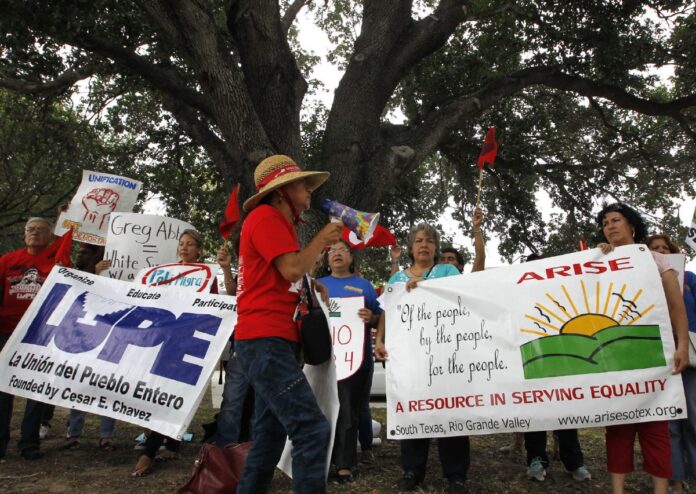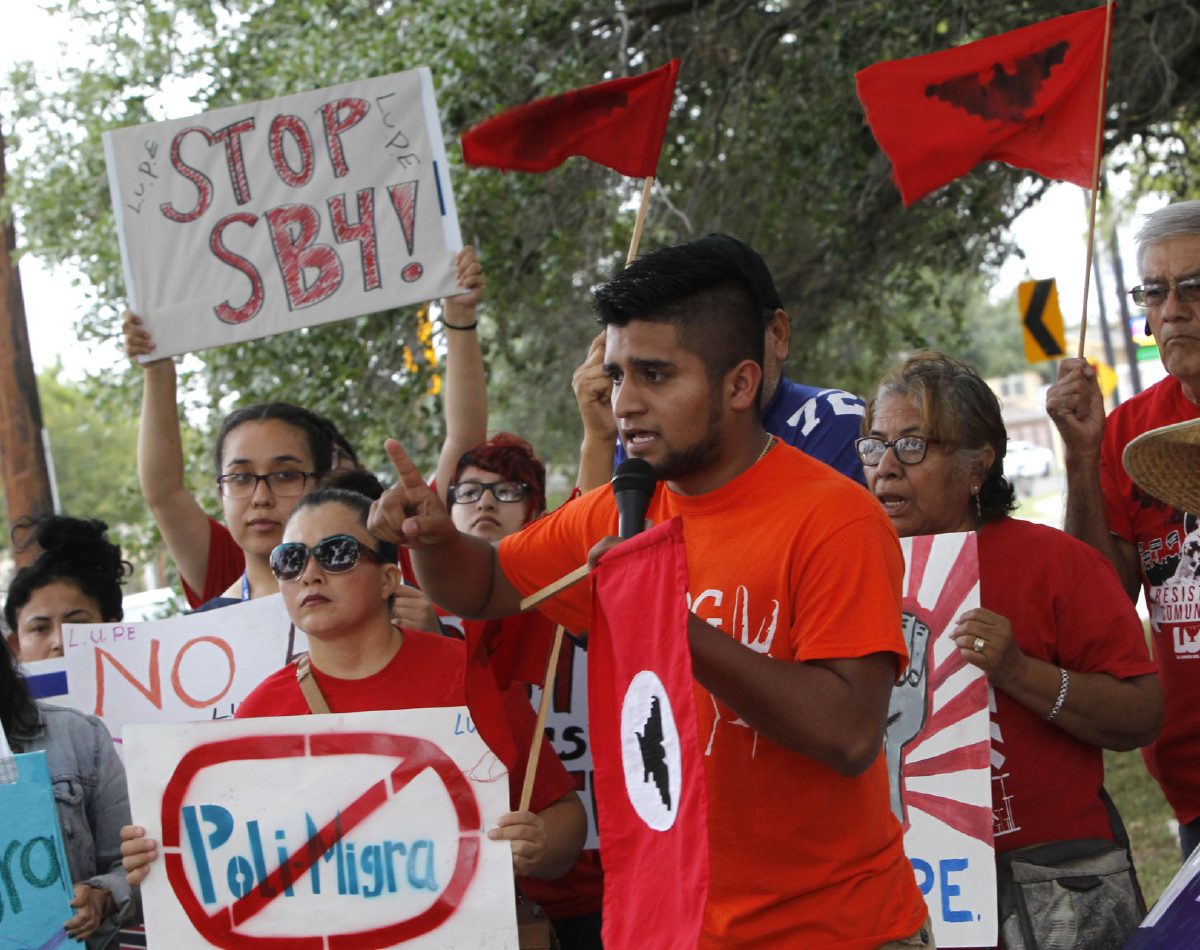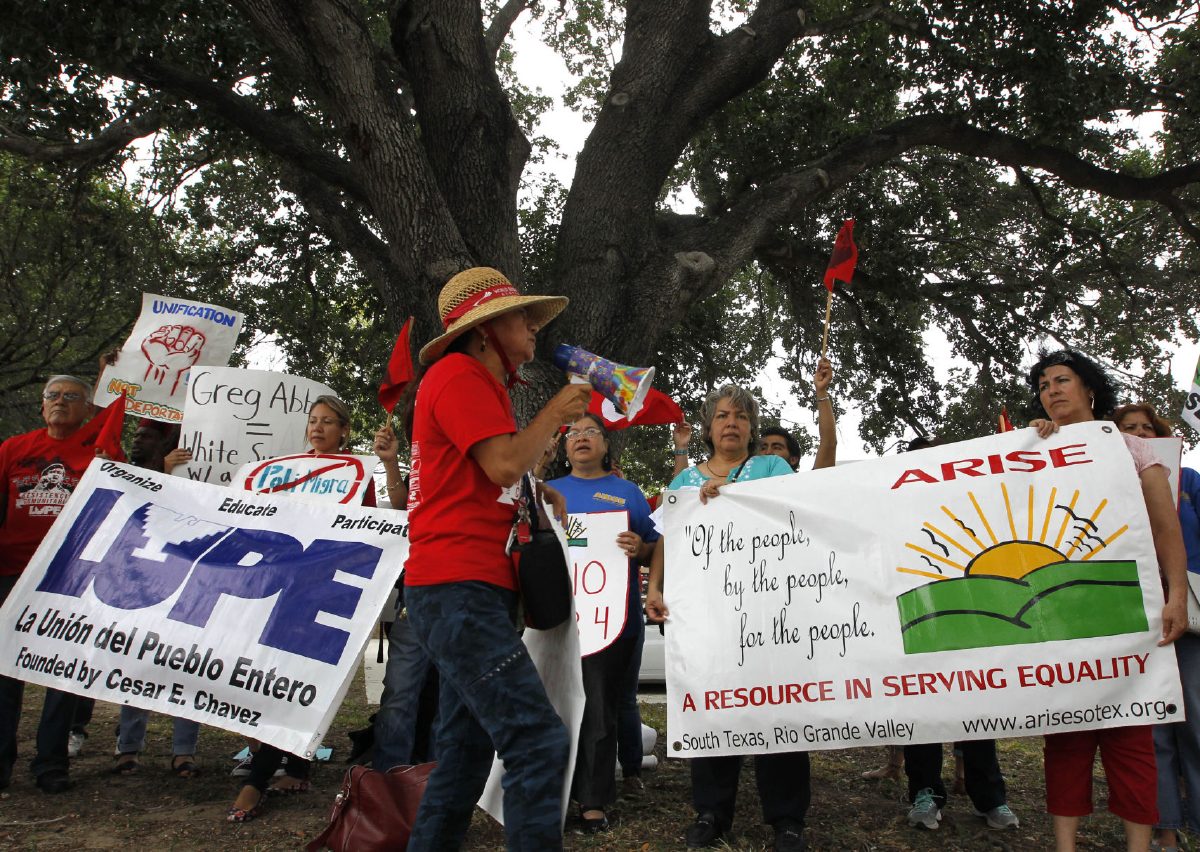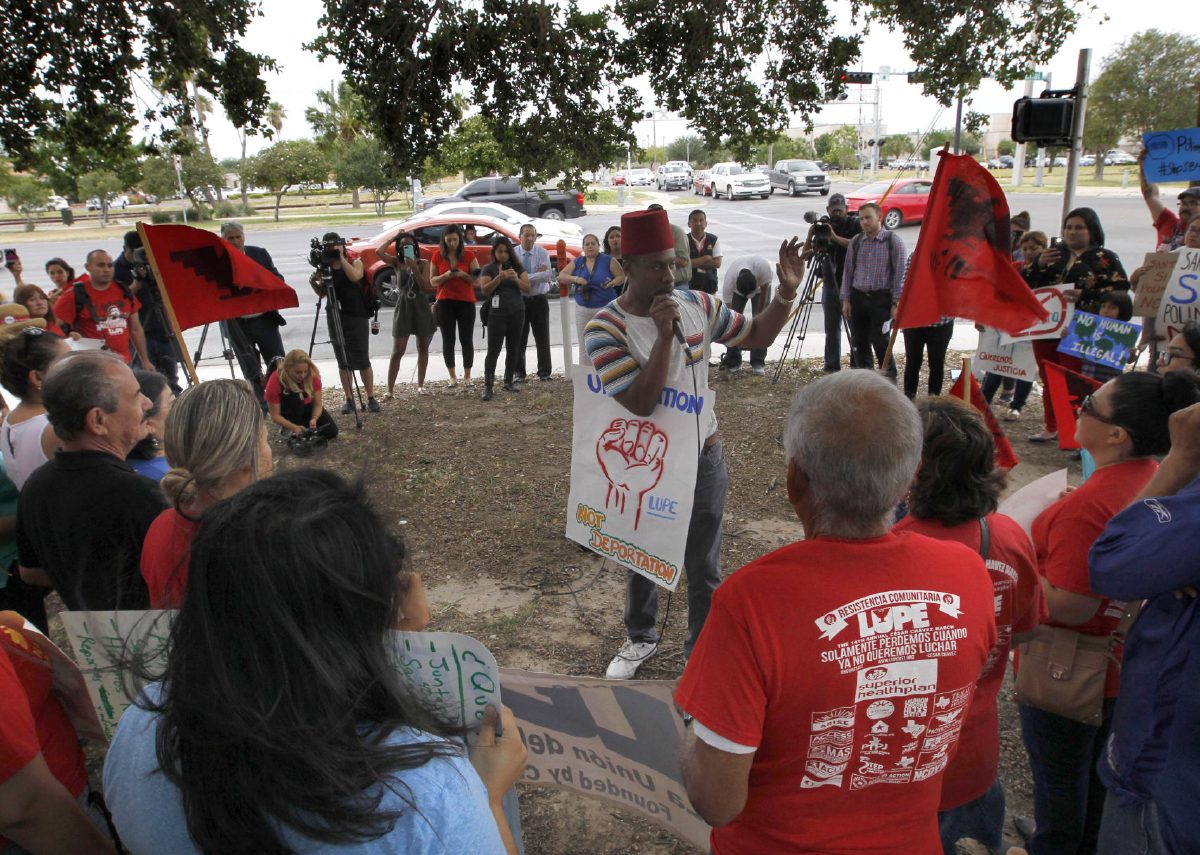McALLEN — About 50 people gathered Monday to rebuke the new sanctuary cities law that Gov. Greg Abbott signed Sunday.
McALLEN — About 50 people gathered Monday to rebuke the new sanctuary cities law that Gov. Greg Abbott signed Sunday.
Members of several pro-immigrant, grassroot nonprofits came together outside a Texas Department of Public Safety building to send the governor a clear message: We will fight you in the streets; we will fight you in the courts.
Formerly known as SB4, the newly enacted law penalizes local governments and law enforcement agencies that fail to enforce immigration law and respect federal detainers for people in custody.
“Last night Governor Greg Abbott signed Senate Bill 4 to require all law enforcement officers to become immigration officers,” said Juanita Valdez-Cox, executive director for La Union del Pueblo Entero. “We cannot accept that law and we fully intend to continue working against the hate and xenophobia that lie at the heart of Senate Bill 4.”
Several members of LUPE, ARISE and the RGV Equal Voice Network took turns leading chants and speaking out against the law, which is slated to take effect Sept. 1.
“I will fight until the last moment, and I won’t let anyone step on my rights,” Inocensio Peña said.
“We want to tell Governor Abbott that this law, far from dividing us, will unite us more.”
A University of Texas Rio Grande Valley student who did not identify himself said the new mandate troubles him.
“I’m worried that campus police will now have the authority to act as immigration agents,” the soon-to-be graduate said. “Not only do I have to worry about Border Patrol, about ICE (Immigration and Customs Enforcement), but now about campus police.”
Samantha Herrera of Fuerza del Valle, a nonprofit working to recover stolen wages from local workers, argued the law will have secondary consequences.
“This will form a platform for this type of wage theft to continue,” she said. “The community will lose the confidence in reporting the crimes that are happening in our communities. That’s what SB4 is.”
Valdez-Cox also touched on the issue.
“How can residents trust local police if officers are required to report every undocumented person they encounter,” she asked rhetorically. “How can a victim of domestic abuse report his or her spouse’s violence if they will be facing deportation themselves? How can a local resident report a burglary of his home if investigators will ask for his documents before investigating the crime?”
LUPE’s director said Hidalgo County’s top law enforcement officer also opposed the law and worked with other fellow sheriffs to convince the legislature to block it.
“Earlier this morning, I spoke with (Hidalgo County) Sheriff Eddie Guerra, who expressed his strong opposition to SB4 saying, ‘I am concerned that the law would erode the relationship that has been built between the community and my deputies. I fear that people will stop reporting crimes for fear of being deported,’” Valdez-Cox said.
Guerra did not return calls for comment Monday.
McAllen Police Chief Victor Rodriguez said there are several misconceptions about the new law. First of all, he said, it doesn’t make much impact operationally — at least not for the City of McAllen, which is not considered a sanctuary city.
Officers need to have probable cause before approaching and questioning someone, he said.
“I can’t just say, where are you from’ because that contact would be unlawful,” Rodriguez said. “So it doesn’t change my requirements.”
The police chief also said the new law does not grant local authorities the permission to remove anyone from the country. That job still belongs in the hands of federal authorities.
“We don’t have any authority,” he said.
Mitchell Ferman contributed to this report.








